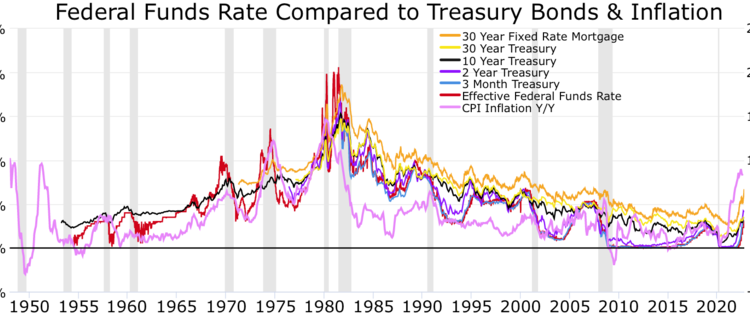Investors brace for change as the era of 5% yields comes to an end.
- The Federal Reserve has lowered its benchmark rate, signaling a shift from a world of 5% yields.
- Investors are advised to move money into fixed-income opportunities and high-quality stocks.
- Economic uncertainty may lead to increased volatility in the stock market.
- Experts suggest focusing on consistent returns from sectors like healthcare and real estate.
- Falling interest rates could benefit smaller companies and international stocks.
The financial landscape is shifting as the Federal Reserve has recently cut its benchmark interest rate, marking the end of a period characterized by 5% yields on short-term U.S. debt. This change comes after a prolonged effort to combat inflation with higher rates. As the Fed signals more cuts in the future, investors are reassessing their strategies. Five prominent investors shared their insights on where to allocate funds in this new environment. nnSaira Malik, Chief Investment Officer at Nuveen, notes that while many anticipated a recession by now, the economy has shown resilience with decelerating inflation and a cooling labor market. She believes that even with rate cuts, the stock market may remain stable for a while, as it often does in similar historical contexts. Malik suggests that investors should consider fixed-income opportunities, such as municipal bonds, and focus on companies with a strong track record of dividend growth. nnRob Arnott, founder of Research Affiliates, expresses skepticism about the Fed’s economic modeling and warns of potential risks from previous rate hikes. He advises investors to seek value over growth and explore non-U.S. stocks, as developed economies abroad may not face the same recession signals as the U.S. nnRichard Bernstein, a former Merrill Lynch strategist, highlights the disparity between the performance of tech giants and other sectors. He is optimistic about small and midsize companies, anticipating that the Fed’s rate cuts could lead to increased investment in cyclical sectors like manufacturing and finance. However, he cautions against speculative investments that could disrupt supply and demand dynamics. nnKatie Nixon from Northern Trust Wealth Management emphasizes the importance of consistent returns, recommending investments in healthcare and real estate. She also suggests Treasury inflation-protected securities as a hedge against future economic shocks. nnJack Ablin of Cresset notes that falling interest rates may shift capital from tech giants to smaller companies and international markets. He highlights the potential benefits of investing in Japan, where the yen has recently weakened, but advises caution due to potential trade policy changes. nnAs interest rates decline, investors are encouraged to adapt their strategies, focusing on quality assets and sectors that can weather economic fluctuations.·
Factuality Level: 7
Factuality Justification: The article provides a detailed analysis of the current economic situation and the Federal Reserve’s actions, featuring insights from various investment professionals. While it presents a range of opinions and forecasts, which may introduce some bias, the information is largely relevant and well-researched. However, the article could benefit from a more balanced presentation of differing viewpoints and less speculative language.·
Noise Level: 7
Noise Justification: The article provides a detailed analysis of the current economic situation, including insights from various investment professionals. It discusses the implications of the Federal Reserve’s rate cuts and offers actionable investment strategies. However, while it presents thoughtful perspectives, it occasionally reinforces popular narratives without deeply questioning them, which slightly detracts from its overall rigor.·
Private Companies: Nuveen,Research Affiliates,Richard Bernstein Advisors,Northern Trust Wealth Management,Cresset
Key People: Saira Malik (Chief Investment Officer at Nuveen), Rob Arnott (Founder of Research Affiliates), Richard Bernstein (Founder of Richard Bernstein Advisors), Katie Nixon (Chief Investment Officer at Northern Trust Wealth Management), Jack Ablin (Chief Investment Officer at Cresset)
Financial Relevance: Yes
Financial Markets Impacted: The article discusses the Federal Reserve’s interest rate cuts and their implications for various financial markets, including stocks, bonds, and international investments.
Financial Rating Justification: The article focuses on the impact of monetary policy changes on investment strategies and market dynamics, making it highly relevant to financial topics.·
Presence Of Extreme Event: No
Nature Of Extreme Event: No
Impact Rating Of The Extreme Event: No
Extreme Rating Justification: The article discusses recent changes in monetary policy and economic forecasts but does not report on any extreme event that occurred in the last 48 hours.·
Move Size: No market move size mentioned.
Sector: All
Direction: Down
Magnitude: Medium
Affected Instruments: Stocks
 www.wsj.com
www.wsj.com 





